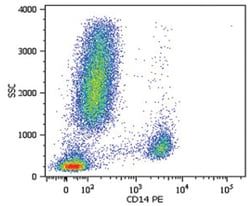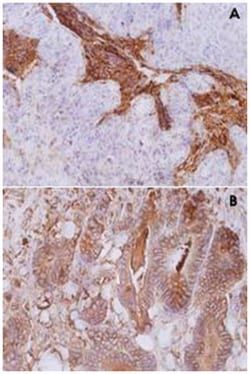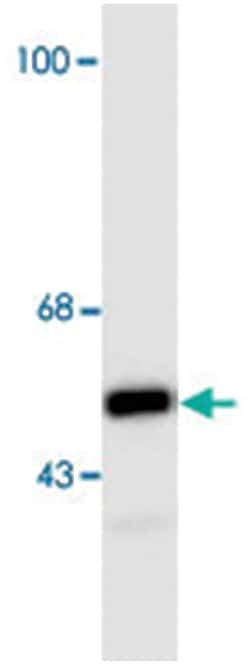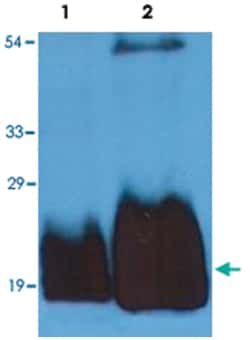CD59, Mouse, Clone: MEM-43/5, Abnova™
Manufacturer: Abnova Corporation
Select a Size
| Pack Size | SKU | Availability | Price |
|---|---|---|---|
| Each of 1 | 89-111-505-Each-of-1 | In Stock | ₹ 54,023.00 |
89-111-505 - Each of 1
In Stock
Quantity
1
Base Price: ₹ 54,023.00
GST (18%): ₹ 9,724.14
Total Price: ₹ 63,747.14
Antigen
CD59
Classification
Monoclonal
Conjugate
Unconjugated
Dilution
Flow Cytometry (1 ug/mL) Western Blot (1-2 ug/mL) Immunohistochemistry (Formalin/PFA-fixed paraffin-embedded sections) (5 ug/mL) The optimal working dilution should be determined by the end user.
Gene
CD59
Gene Symbols
CD59
Immunogen
Native Thymocytes and T lymphocytes.
Regulatory Status
RUO
Gene ID (Entrez)
966
Target Species
Human, Mouse
Form
Liquid
Applications
Flow Cytometry, Immunohistochemistry (PFA fixed), Immunoprecipitation, Western Blot
Clone
MEM-43/5
Description
Mouse monoclonal antibody raised against native CD59.
Formulation
In PBS, pH 7.4 (0.09% sodium azide)
Gene Alias
16.3A5/1F5/EJ16/EJ30/EL32/FLJ38134/FLJ92039/G344/HRF-20/HRF20/MAC-IP/MACIF/MEM43/MGC2354/MIC11/MIN1/MIN2/MIN3/MIRL/MSK21/p18-20
Host Species
Mouse
Quantity
100 μg
Primary or Secondary
Primary
Test Specificity
This antibody reacts with well defined epitope (around L33) on CD59 (Protectin), a 18-20 KDa glycosylphosphatidylinositol (GPI)-anchored glycoprotein expressed on all hematopoietic cells; it is widely present on cells in all tissues. This antibody does not compete with most other CD59 antibodies.
Content And Storage
Store at 4°C. Do not freeze.Aliquot to avoid repeated freezing and thawing.
Isotype
IgG2b
Description
- Description This gene encodes a cell surface glycoprotein that regulates complement-mediated cell lysis, and it is involved in lymphocyte signal transduction
- This protein is a potent inhibitor of the complement membrane attack complex, whereby it binds complement C8 and/or C9 during the assembly of this complex, thereby inhibiting the incorporation of multiple copies of C9 into the complex, which is necessary for osmolytic pore formation
- This protein also plays a role in signal transduction pathways in the activation of T cells
- Mutations in this gene cause CD59 deficiency, a disease resulting in hemolytic anemia and thrombosis, and which causes cerebral infarction
- Multiple alternatively spliced transcript variants, which encode the same protein, have been identified for this gene
- [provided by RefSeq




